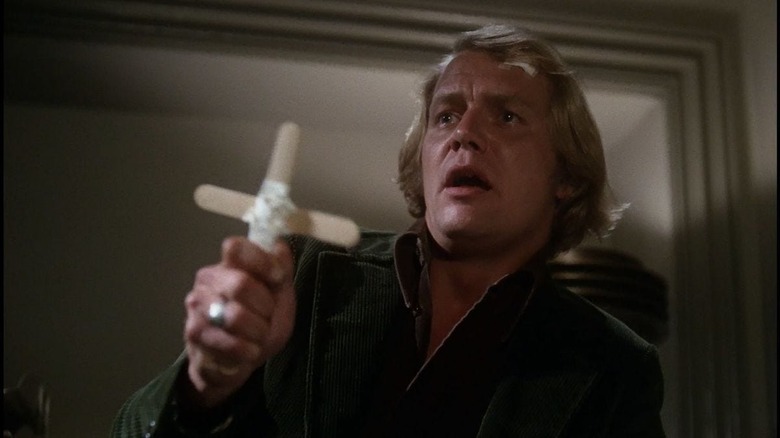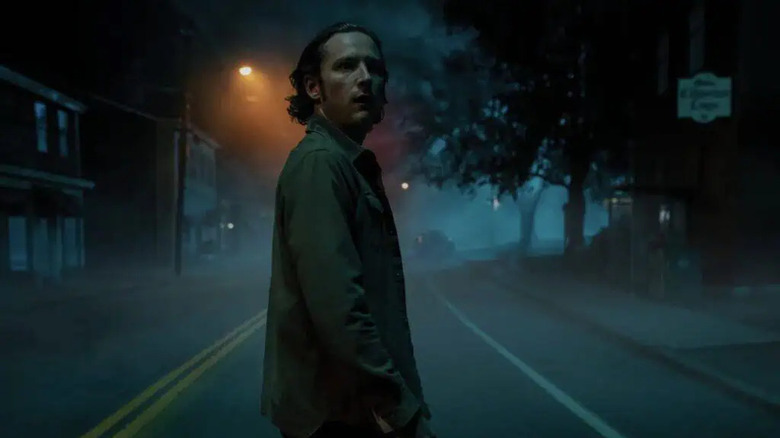Static Media/Getty Images
History is a peculiar creature. At times, we are all aware that we are experiencing a significant historical event, often marked by a terrible disaster or a period of exceptional difficulty. However, more often than not, the people living in a particular era cannot fully comprehend it; it’s only with the advantage of hindsight that we can identify the beginnings and landmarks of events that appeared insignificant as they unfolded. This is why critics, historians, and artists are so crucial to our society, as they are tasked with identifying and highlighting these pivotal events and trends as they occur, either to celebrate them or to caution against their perpetuation.
Despite being one of Stephen King’s early works, “Salem’s Lot” demonstrates that King was already a sharp observer of American culture, both mainstream and otherwise. The novel is successful on multiple fronts: firstly, it is undeniably terrifying, with King’s skillful writing creating a palpable sense of dread that permeates the book. Secondly, it cleverly incorporates the traditional “rules” and clichés of vampire lore into a contemporary setting. In fact, it does for the horror genre what filmmakers like Tobe Hooper (who fittingly first adapted “Salem’s Lot” for the screen in 1979) were just starting to do, and others like Steven Spielberg would later continue – transporting the classic monsters and villains of horror from the gloomy castles and isolated villages of old into America’s small towns, literally and metaphorically making them our neighbors. While there are numerous reasons why King considers “Salem’s Lot” his favorite story, his fondness for the novel is primarily due to a particularly chilling historical reason.
How King came up with the title for ‘Salem’s Lot’

Warner Bros. Pictures
The primary reason King cites “Salem’s Lot” as possibly his favorite story also explains how the book (and the town it is set in) got its name. In a 1987 interview with Phil Konstantin for “The Highway Patrolman” magazine, King first explained his affection for “Salem’s Lot”:
“In a way it is my favorite story, mostly because of what it says about small towns. They are kind of a dying organism right now. The story seems sort of down home to me. I have a special cold spot in my heart for it!”
In a follow-up discussion, the author further clarified the origin of the story and how the book and town got their name from a real-life event that had become urban legend:
“It is based on a town in upstate Vermont, that I heard about as an undergraduate in college, called Jeremiah’s Lot. I was going through Vermont with a friend and he pointed out the town, just in passing, as we went by in the car. He said, ‘You know, they say that everybody in that town just simply disappeared in 1908.’ I said, ‘Aw, come on. What are you talking about?’ He said, ‘That’s the story. Haven’t you heard of the Marie Celeste where everybody supposedly disappeared? This is the same thing. One day they were there and then one day a relative came over to look for someone that they hadn’t heard from in awhile; and all of the houses were empty. Some of the houses had dinner set on the table. Some of the stores still had money in them. It was covered in mold from the summer damp and it was starting to rot, but nobody had stolen it. The town was completely emptied out.'”
Even though the interview veered off in another direction after this, it’s easy to see how King took this early 20th-century tale and reimagined it in a new context, involving a vampire who moves into a small town and gradually depletes (or, more accurately, converts) its population.
‘Salem’s Lot’ continues to be relevant

Warner Bros. Pictures
Even if King was only semi-aware of the deeper implications he was conveying with “Salem’s Lot,” it’s still impressive how the author either consciously or instinctively grasped the complementary contrasts of the vampire mythos and a state of nostalgia. One of the vampire’s attractions as a horror creature is the concept of immortality – despite having an unquenchable thirst for blood (and, likely, a dislike for sunlight), you’d stay young, attractive, and free of ailments forever. “Salem’s Lot” scrutinizes how nostalgia for one’s past and youth – whether on a personal or national scale – is a trap. Like people, things change and decay because they have to, and there’s no true way to halt or reverse this process.
That doesn’t mean that longing to turn back time is a bad thing, or that the loss of the “down home” elements of American life, as King describes them, isn’t to be mourned! The current adaptation of “Salem’s Lot,” streaming on Max and written and directed by Gary Dauberman, manages to preserve this theme in several clever ways. Dauberman sets the movie in the same year the novel was originally published, allowing the movie itself to be nostalgic for that period of American history and especially that era’s horror films. His decision to feature a drive-in theater as the town’s traditional pastime (rather than a sporting event or some other such activity) only amplifies this theme, as drive-ins themselves are almost extinct, with the few remaining in operation being able to do so largely thanks to horror fans.
It’s uncertain whether King still considers “Salem’s Lot” his favorite overall story some 37 years after that interview. After all, as time passes, your perspectives and opinions can shift. So, in a way, the Stephen King of 2024 is not the same King from 1987. However, like the undead, the novel “Salem’s Lot” remains accessible, unaltered, a warning about the future from the increasingly distant past. As another saying goes, the more things change, the more they stay the same.
“Salem’s Lot” is currently streaming on Max.
Credit: www.slashfilm.com


